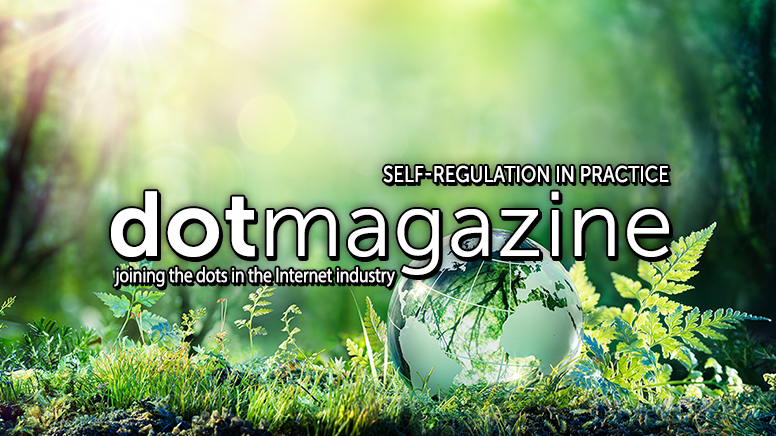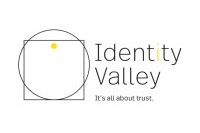The Digital Responsibility Goals – It’s All About Trust
Jutta Juliane Meier from Identity Valley introduces the Digital Responsibility Goals (DRGs) for designing trustworthy technological products and services.

© Alena Butusava| istockphoto.com
dotmagazine: You founded Identity Valley in 2020. How did you come up with the idea?
Jutta Juliane Meier: I have been working as an independent digital consultant since 2009 and spent a lot of time in Silicon Valley to understand the innovators’ mindset and toolset which has led to so many impressive and disruptive technologies. Trying to build bridges to Germany and Europe I recognized the need for an applicable European model that authentically and intuitively helps to guide digital transformation in a responsible direction.
Discussions with and confirmations from mentors and thinkers from of industry, politics, and academia had been keeping me awake since about 2019, and everything then unfolded over the past 2 years. During the pandemic it was hard to establish a nonprofit organization and to acquire the funding needed, but with the help of my family and friends, as well as some early supporters, I’ve somehow been able to pursue this vision.
Today I am very thankful for everyone who encouraged and motivated me to keep going and I am very much looking forward to everything we will achieve in the future. Recently, we were recognized the very first German “Corporate Responsibility Award”. Being in third place behind companies like Adobe and the Otto Group felt quite good.
dot: What exactly is the organization working on?
Meier: As mentioned, Identity Valley is a European reaction to the hype around the American Silicon Valley. Where one technological development is chasing the next at a rapid pace, where digital technology is becoming a maxim, where the merging of the digital and the real world takes place.
The aim of Identity Valley is to protect personal identity, to promote mutual trust and to enable responsible digital innovation. We bring together entrepreneurs, politicians, scientists, and citizens in Europe. “It’s all about trust” is the credo. It's about value-based economics. It’s about responsibility. It is about a worthy coexistence of man and machine. And it’s about identity. Digital identity is a critical success factor. Digital products and services that respect and protect identities, without excluding policies, are the future. Human and digital identities are at the center of all considerations.
dot: You say “It's all about trust” is the credo of Identity Valley. How can trust be specifically created in the digital space?
Meier: Digital technologies bear the potential to advance Europeans’ lives even further, but the motivations behind technological innovation have long been focused on profit rather than people. Policies and laws cannot match the speed of technology anymore. Too often, critical decisions about the future of societies are made without guidelines on how to make sustainable decisions. Therefore, we want to work towards incentivizing sustainable digital development based on trust through the Digital Responsibility Goals (DRGs).
Leading corporations commit themselves to the UN SDGs to show they want to make a difference. Similarly, the DRGs are designed to provide guidance to corporate and other actors on how to design trustworthy technological products and services.
The DRGs are intended to serve as a benchmark for companies in the digital space. The DRGs are a combined approach of all relevant actors to promote trust in digital technologies and business models. The DRGs present a methodology to measure success and hold participants accountable for their digital strategies. The DRGs offer stakeholders, from decision-makers to regulators, business experts and the civil society, the opportunity to form a common agenda and commit to it. Just as the UN Sustainable Development Goals galvanized the international community into action and structured an agenda for a more sustainable planet, the DRGs want to promote humane technology, based on rights and democratic values.
dot: What are the Digital Responsibility Goals?
Meier: Developed in a consortium consisting of leading academics, NGOs, and industry experts, the DRGs cover 7 areas where we see scope for commitments that go beyond compliance with existing laws and regulations.
- Digital Literacy and access to technology is the basis for trust in and acceptance of digital innovation.
- Cybersecurity equips systems with powers to fend off cyber-attacks and protect users from manipulation and fraud.
- Privacy serves users and protects their unique identities. Modern privacy practices are an additional offer to users, independent of existing regulations, and can bring together privacy safeguards with data-based business models.
- Data Fairness means that even non-personal data needs to be protected and treated carefully based on its value to ensure a balanced and fair collaboration between all actors in the data ecosystem.
- Trustworthy Algorithms ensure that, after data collection, data continues to be processed based on core principles like explainability and fairness.
- Transparency must form the basis to guide the actions of all stakeholders in the digital supply chain to create trust.
- Human Agency & Identity are critical guideposts and the precondition for digital development. Digital products and services must be human-centric, sustainable, inclusive, and developed under human oversight.
The first publication of the DRGs took place on June 23rd, 2021, at the European Parliament in Brussels. MEP Prof. Dr. Angelika Niebler, responsible for the European Data Governance Act, together with the initiators of Identity Valley welcomed selected speakers and guests that shared their views and made their voices heard on digital responsibility from different perspectives like politics, industry, civil society and science.

dot: How do you intend to achieve these goals?
Meier: We are actively calling for participation and support: For instance, we requested support from the European Commission and European Parliament in promoting the Digital Responsibility Goals. It’s important to support the process of developing and refining the Digital Responsibility Goals through a multi-stakeholder process – offering experts from the fields of industry, policy, non-profit and academia a chance to participate in shaping the DRGs.
We are constantly involving more and more stakeholders to become part of our movement and asking them to commit to the Digital Responsibility Goals. Visibly taking responsibility for sustainable digital development and becoming part of a value-driven ecosystem of leaders and organizations will help us to shape trustworthy, sustainable digital transformation.
dot: What can we expect from Identity Valley in the future?
Meier: Due to the encouraging feedback, especially over the past year, we will be organizing even more advocacy events as well as parliamentary talks together with our supporters and partners from eco – Association of the Internet industry, the BMW Foundation Herbert Quandt, the European Parliament, the Alliance4Europe, and many others.
A concrete cooperation project with the eco Association will be the joint development of guidelines as well as a metric for the definition and measurability of digital responsibility for the European data infrastructure project Gaia-X, based on the seven Digital Responsibility Goals defined by Identity Valley. In concrete terms, this will involve the alignment of the value proposition to build sovereign data ecosystems according to European values and standards. Identity Valley’s Digital Responsibility Goals document the current state of Gaia-X implementation. Subsequently, recommendations for action for the design of the project will then be derived with reference to digital responsibility.
Furthermore, Identity Valley is part of an important research project funded by the German Federal Ministry for Economic Affairs and Climate Action, starting in January 2021: “TEAM-X”. The aim of “Trusted Ecosystem of Applied Medical Data Exchange” is to establish a protected and trustworthy digital data ecosystem based on the Gaia-X infrastructure for the development of data-driven business models, products, and services. Two Gaia-X use cases are to be developed in the areas of nursing and women’s health. Within this research project, the Digital Responsibility Goals will be brought into action through Responsible Leadership Trainings, as well as other methodologies.
As you can imagine, there are several projects and new collaborations being developed and scoped right now to further activate the DRGs. If you are interested in learning more, please get in contact or visit www.identityvalley.org Thank you!
As the founder and CEO of Identity Valley as well as an independent digital transformation advisor, Jutta Juliane Meier is passionately building bridges by connecting innovators & innovations, especially between Silicon Valley and Germany. She is an innovator who helps companies transforming things by identifying the right (digital) strategies, tools and partnerships.
Her motivation is: Transforming complexity into simplicity: "Think big. Then: Keep it simple."
Please note: The opinions expressed in Industry Insights published by dotmagazine are the author’s own and do not reflect the view of the publisher, eco – Association of the Internet Industry.





